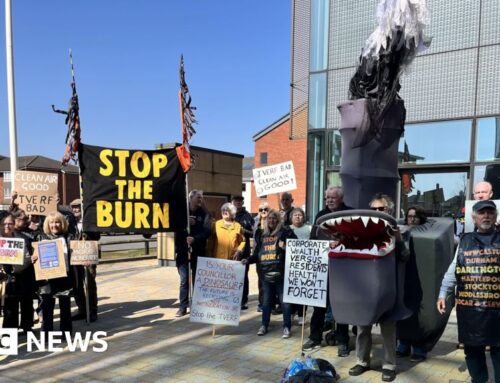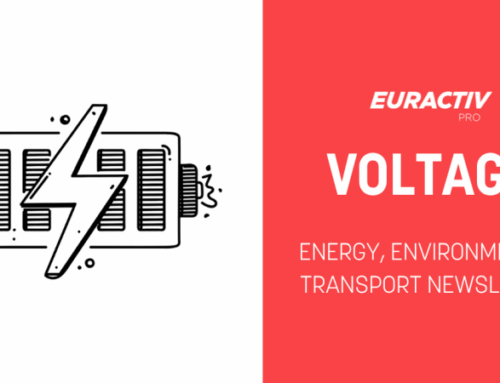The United States is not where it should be when it comes to the transition to renewable energy. Ask any climate scientist or reputable energy expert, and they’ll tell you we’re significantly behind schedule if we’re hoping to avoid the most catastrophic effects of climate change. The Inflation Reduction Act (IRA), which Joe Biden’s administration got passed in 2022, was meant to help speed up that transition and get the country on the right track. Now, it’s under attack.
President Donald Trump’s administration has been working to undo any policies that would help the world avoid a climate catastrophe, and it is now trying to use the so-called “Big Beautiful Bill” to repeal most of the climate-focused initiatives contained in the IRA. Trump’s signature legislation is caught up in the Senate after the House passed it last month, so it’s not entirely clear what the final draft will contain, but experts agree that these climate provisions are clearly on the chopping block.
The latest version of the bill would be particularly catastrophic for wind and solar. Republicans not only want to significantly cut tax credits for these clean energy projects, they wants impose new taxes on them for the first time. Wind and solar projects completed after 2027, for instance, will be taxed unless they can prove no Chinese components were used.
“They’re proposing an outright massacre with punishing new taxes on these industries that happen to be the cheapest and easiest ways to get new energy on the grid,” Sen. Ron Wyden (D-Ore.) wrote in a statement Saturday. “If this becomes law, it will be a shocking act of economic self-sabotage.”
Republicans also stand to cut the $7,500 tax credit for consumers who purchase a new electric vehicle, and the $4,000 credit for consumers who buy a used one.
“It is clear that many of the grant and loan programs that were established by the IRA are at especially high risk,” Romany Webb, deputy director of the Sabin Center for Climate Change Law at Columbia University, tells Rolling Stone. “The tax credits are a little more uncertain, but we should expect changes to at least some of the tax credit programs and the elimination of some of them.”
It appears some tax credits, like those for nuclear and geothermal energy companies, might remain until at least 2034. Trump recently made it known that he doesn’t like tax credits going to clean energy projects, but he didn’t specify what he was talking about.
“I HATE ‘GREEN TAX CREDITS’ IN THE GREAT, BIG, BEAUTIFUL BILL. They are largely a giant SCAM,” Trump posted last week on Truth Social. “I would much prefer that this money be used somewhere else, including reductions.”
The latest version of the bill slashes tax credits for wind and solar projects, while offering them for coal production. “Utterly insane and destructive,” Elon Musk wrote of the bill on Saturday. “It gives handouts to industries of the past while severely damaging industries of the future.”
Daniel Kammen, a distinguished professor of energy at the University of California, Berkeley, says he doesn’t think anything is off the table when it comes to cuts to the IRA, and that Republicans will have to make individual decisions about what might help or hurt them when the midterms come around next year.
“There are Republicans who voted against the IRA who then campaigned for reelection on its merits,” Kammen says. “[The bill is] even targeting measures popular with Republicans.”
Nearly 80 percent of renewable energy project funding in the IRA went to Republican congressional districts. Many hoped Republicans wouldn’t eliminate provisions that benefited their constituents. However, with Donald Trump leading the charge, much of this funding might be cut, regardless of whether it is helping Republicans.
“The fact that many of the incentives were provided to red states means that even Republican governors and legislators will probably be averse to abandoning them,” says Michael Mann, a distinguished professor of Earth and environmental science at the University of Pennsylvania. “So there is some hope there.”
It’s unclear what will become of projects that were started due to the passage of the IRA or were helped along by it. Kammen says these cuts will likely have a “big effect,” and that they may suddenly find it difficult to obtain more capital for “project expansion and grid connection,” for example. “The amount of damage that is going to be done is high,” he says.
There is also concern about Trump administration efforts to claw back funds that were already guaranteed to certain projects, which are being challenged in the courts. If the courts rule against the Trump administration, then that funding would remain intact.
“These recent efforts by the Trump administration to cancel validly executed contracts are ridiculous,” Webb says. “It’s up to Congress to determine what gets funded, and Congress sets the priorities in a statute like the IRA.”
While many industrialized nations, from Europe to China, are preparing for the future and investing in renewable energy, the U.S. appears determined to double down on antiquated and withering energy sources. Some of the efforts to transition away from fossil fuels in America will continue on, such as those at the state or local level, but the Trump administration is doing everything it can to kill green energy at the federal level and even trying to block many of the local initiatives to move away from fossil fuels.
Kammen says we’re “hitting pause” on renewable energy development at exactly the wrong moment, with Webb adding that America is “looking backwards” while other nations are focusing on what’s ahead of us.
“For U.S. competitiveness, it’s really important,” Webb says. “This will have huge economic impacts. Renewable energy is cheaper than fossil fuel energy. Any consumer who has an energy bill should care about this.”



